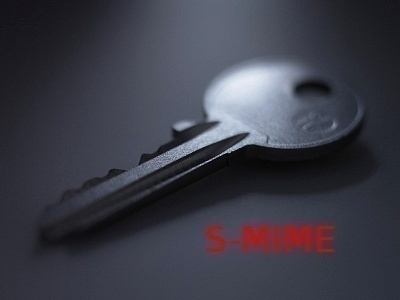S-MIME
S/MIME, (Secure / Multipurpose Internet Mail Extensions) is a protocol which provides digital signatures and encryption of Internet MIME messages.
S/MIME, which utilizes the RSA (Rivest-Shamir-Adleman) public-key encryption technology, is a secure method for sending email. S/MIME defines how a digital certificate and encryption information can be provided as part of the message body. The S/MIME protocol follows the syntax as laid down in the PCKS #7 (Public-Key Cryptography Standard format number 7).
S/MIME has been proposed by RSA as a standard to the Internet Engineering Task Force (IETF). PGP/MIME is an alternative to S/MIME. 
S/MIME History
S/MIME was developed by RSA Data Security to thwart forgery and interception of electronic messages. S/MIME was created on the existing MIME protocol standard and it can be integrated easily into the existing email and messaging products. As S/MIME was designed on the existing popular supported standards, it became quite popular and was implemented across a wide range of operating systems and email clients. Another reason for the S/MIME protocol’s wide acceptance is that S/MIME allows a Windows user to send a digitally signed and secure email with the Outlook email client to a Unix OS user, who can receive the email using the Netscape email client. The users do not have to install any additional program or software to utilize this facility.
S/MIME Functionality
S/MIME provides cryptographic security services for email applications such as: message integrity, authentication, and non-repudiation of origin, privacy, and data security. The functionality of S/MIME is built into the vast majority of recent editions of email software including Gmail, Outlook Express, Apple Mail, Mozilla Thunderbird, The Bat!, Lotus Notes, Netscape Communicator, Gnus, KMail, Balsa, and Sun Java Messaging.


Comments - No Responses to “S-MIME”
Sorry but comments are closed at this time.